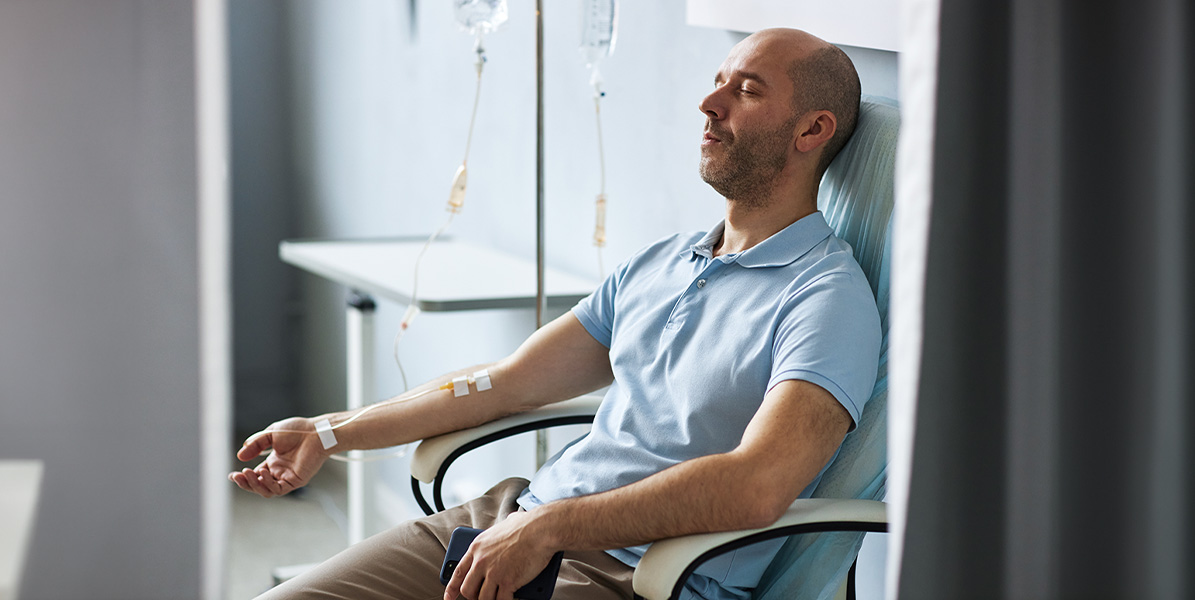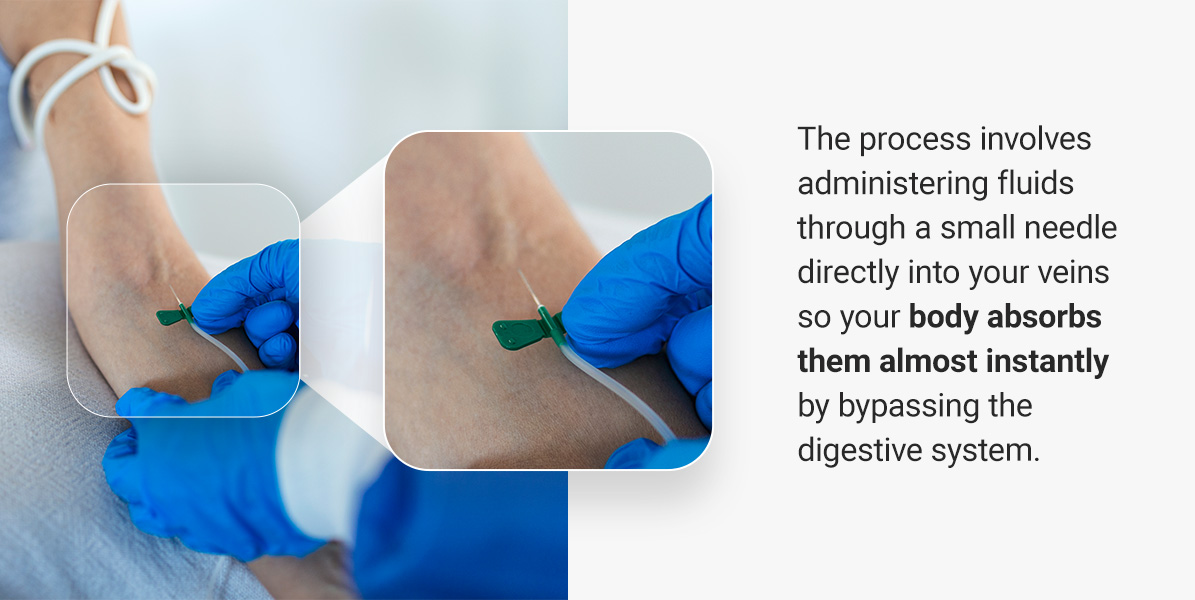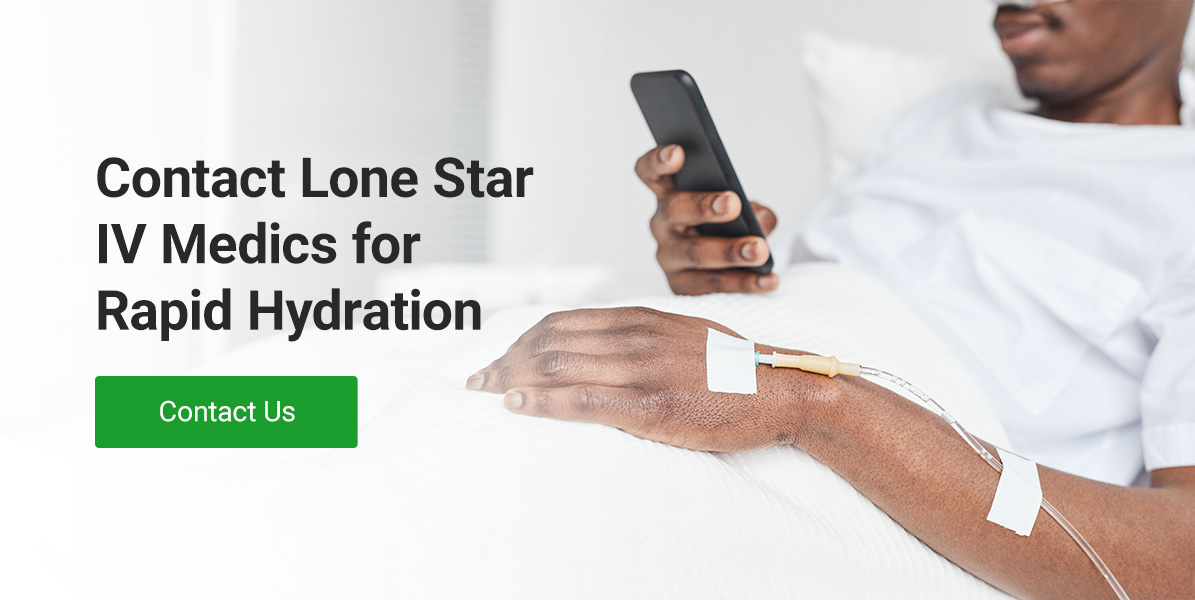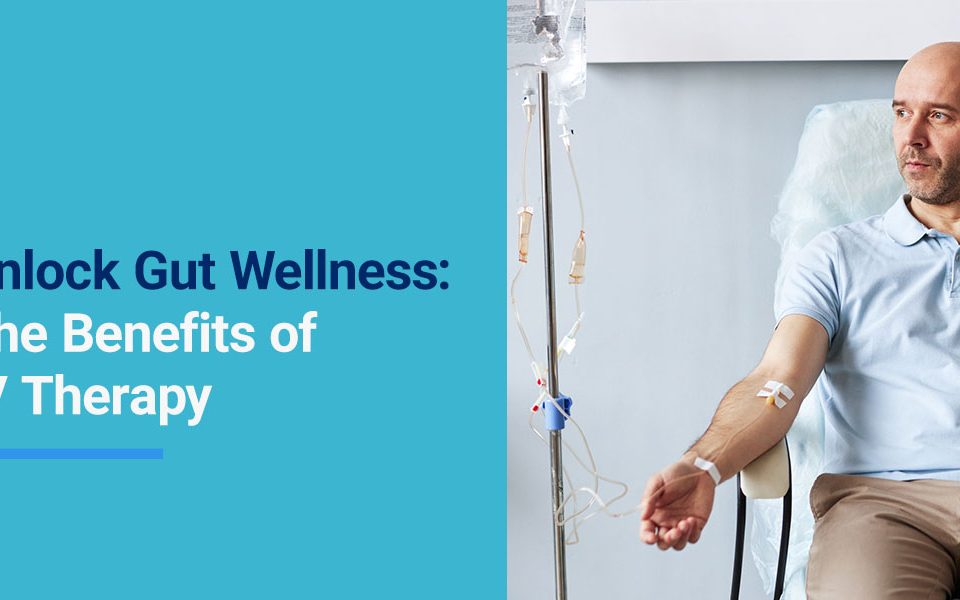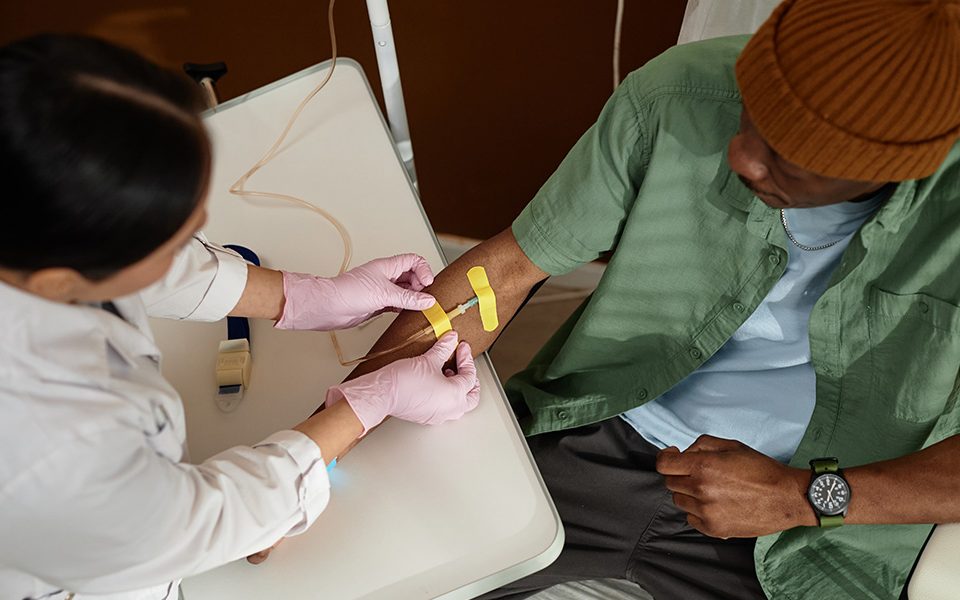New Client Special – One Free IV Add-in (Up to a $30 Value) Schedule Now
When to Choose IV Hydration Over Water

How IV Therapy Can Improve PMS Symptoms
December 5, 2024
Why IV Therapy for Musicians and Performers Rocks!
December 11, 2024Staying hydrated is vital for many bodily functions. It regulates your temperature, lubricates your joints and helps transport nutrients to your cells. Without enough water, your body can't perform at its best – and that's true whether you're exercising, working in hot conditions or just going about your daily life.
Dehydration occurs when your body loses more water than it takes in. Left unchecked, this can lead to fatigue, headaches, dizziness and even heatstroke. Over time, chronic dehydration can affect your kidneys, skin, and cognitive function. You can resolve mild hydration by drinking water, but in cases of extreme fluid and mineral loss, intravenous (IV) therapy can support your recovery.
If you're wondering about the effectiveness of IV fluids vs. water for dehydration, this guide will help you choose the right option for your needs.
IV Therapy vs. Oral Hydration
Oral hydration and IV therapy aim to hydrate the body, but their techniques and use cases differ.
Benefits of Drinking Water
Sipping water is the recommended method for staying hydrated throughout the day, and it's convenient because you can take a sip from a water bottle during your workout or have a glass with meals.
Drinking enough water supports natural body functions. It aids digestion, supports skin health, lubricates joints and flushes out toxins. Water is also often accessible, whether you're at work or at home.
Tips for Drinking Enough Water
A common guideline is drinking at least 11 glasses of water daily. To ensure you're adequately hydrated, follow these tips:
- Keep a water bottle handy: Having a bottle within reach makes it easy to take sips throughout the day.
- Set goals: If you're motivated by targets, setting a daily water intake goal can help keep you on track. You can set hourly reminders or use apps that help you log how much water you're drinking and send reminders to keep sipping.
- Eat water-rich foods: Foods like watermelon, cucumbers and oranges are water-rich and can contribute to your daily hydration goals.
- Drink a glass of water before each meal: This can also aid in digestion and help you feel full, which might prevent overeating.
- Drink water before, during and after activity: If you have a physically demanding job or intense workout routines, hydrate before you start, sip water during your activity and replenish fluids afterward.
- Infuse your water: If you find plain water boring, add fruit slices or herbs. This adds flavor without any added sugars or calories, making it more enjoyable to drink.
- Start your morning with water: Drinking a glass of water first thing in the morning helps kick-start your hydration and can wake up your body more effectively than coffee.
- Drink water with every bathroom break: An easy way to build a habit is to link it to something you already do. Every time you go to the restroom, take the opportunity to drink a small glass of water.
Limitations of Water
Water is excellent for daily hydration, but it does have limitations. In some cases, it simply doesn't replenish fluids quickly enough.
- Severe dehydration: When you lose fluids rapidly, like during intense workouts or in extreme heat, drinking water may not be sufficient to rehydrate quickly.
- Absorption rate: Water must first pass through the digestive system, where it's processed before entering the small intestine and blood vessels for absorption and rehydrating your cells. If you're dehydrated or experiencing heat exhaustion, water alone might not work fast enough.
- Lack of electrolytes: Plain water won't replenish lost electrolytes, like magnesium, sodium or potassium, which are crucial for muscle function and overall hydration.
IV Therapy: The Fast-Track to Hydration
For most people, drinking water is the simplest and most effective way to stay hydrated daily. But there are situations when it may not be enough, and that's where alternatives like IV therapy come in.
IV therapy is a technique of delivering fluids directly into your bloodstream. The process involves administering fluids through a small needle directly into your veins so your body absorbs them almost instantly by bypassing the digestive system. These liquids often contain a saline solution mixed with electrolytes, vitamins and other nutrients that support your body's recovery.
Benefits of IV Therapy
Here are some perks of IV therapy:
- Faster hydration: Because the fluids are delivered directly into your bloodstream, your body starts absorbing them immediately, which can be lifesaving in extreme cases of dehydration.
- Replenishment of electrolytes: In addition to water, IV therapy can include essential electrolytes and vitamins that help your body recover faster.
- Supports recovery: After extreme physical exertion or illness, an IV can help your recovery by providing your body with what it needs faster than drinking water would allow.
- Customizable treatments: IV therapy allows you to get specific vitamins and nutrients tailored to your body's needs.
When to Choose IV Hydration
Here are scenarios when IV therapy is better than water for rapid hydration.
Coping With Certain Medical Conditions
Conditions like gastrointestinal diseases can cause vomiting or diarrhea, resulting in your body losing both water and electrolytes. Drinking water can help, but if you're struggling to keep fluids down or dehydration worsens, your body may not absorb it fast enough to make a difference.
In cases like these, using IV therapy for rapid hydration and replenishing lost nutrients and minerals might be ideal.
Participating in Physically Demanding Jobs or Activities
After an extreme event like a marathon or ultra-endurance race, athletes may need more than water to fully recover. IV therapy can help replace lost fluids and nutrients more quickly.
For construction workers, landscapers and other individuals who work in the heat, the risk of heat exhaustion is serious. Being exposed to high temperatures for long periods means sweating out more fluids than you're taking in.
IV therapy can help you quickly replenish your electrolytes, rehydrate your body and give you energy support.
Dealing With Hangover Recovery
Alcohol is a diuretic and dehydrates your body by making you lose more fluid through urine. If you've ever woken up after a night out with a pounding headache and dry mouth, you've felt the effects of dehydration firsthand.
You can turn to the procedure to alleviate hangover symptoms if you don't want to wait hours for the effects of water to kick in.
Contact Lone Star IV Medics for Rapid Hydration
When you need fast and effective hydration, Lone Star IV Medics is here to help.
We offer mobile IV therapy and will meet you where you are — whether you're at home or in the workplace. Our medics have your back with customized fluids to meet your needs when water alone isn't enough.
Schedule an IV therapy treatment today and experience what rapid hydration can do for your health.

